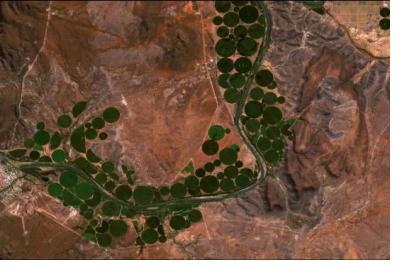A grantmaking collective committed to creating and mobilizing labeled datasets that facilitate the development of machine learning applications to address urgent problems has launched a new request for proposals (RFP) for funding. [Lacuna Fund](https://lacunafund.org/), which aims to support as many organizations as possible in using artificial intelligence for social good in low- and middle-income contexts, focuses on agriculture, health and languages. This latest request for proposals will fund labeled agricultural datasets for machine learning in sub-Saharan Africa, whether referenced to Earth observation data or related to other aspects of the crop and animal agricultural system.
Interested organizations headquartered in Africa or having a substantial partnership with organization(s) headquartered in Africa can [submit their applications](https://meridian.smapply.io/prog/lacunafund_agriculture/) until 3 September 2020. Further details are available from the [authoritative version](https://lacunafund.org/wp-content/uploads/sites/11/2020/07/Lacuna-Fund-Agriculture-RFP-2020_Final-1.pdf) of the RFP.
The RFP is published against the backdrop of recent advances in the analysis of remote sensing data in the agricultural domain, which have improved machine learning applications in areas such as prediction of crop types and vegetation health. However, in order to build effective and reliable applications, ground truth labels are critical, as are datasets allowing to address unique local challenges. The RFP prioritizes proposals for datasets in crop and animal agriculture; a list of areas where the Fund identifies a particular need for labeled datasets [is available](https://lacunafund.org/wp-content/uploads/sites/11/2020/07/Lacuna-Fund-Agriculture-RFP-2020_Final-1.pdf#page=6) in the RFP document.
Crop-related information [plays an important role](/projects/evidenz/methods-and-tools) in drought early warning and monitoring applications. For instance, a drought is expected to have less effect on crop yield if the drought manifests itself towards the end of the crop season, while it is expected to have major impacts during the start or the peak of the season. By taking this into consideration the crop’s phenology, the assessment of the effects of drought on crops can be improved.
Lacuna Fund began as a funder collaborative between The Rockefeller Foundation, Google.org, and Canada’s International Development Research Centre, but has since evolved into a multi-stakeholder engagement supported by a range of development, philanthropic, and research institutions.

